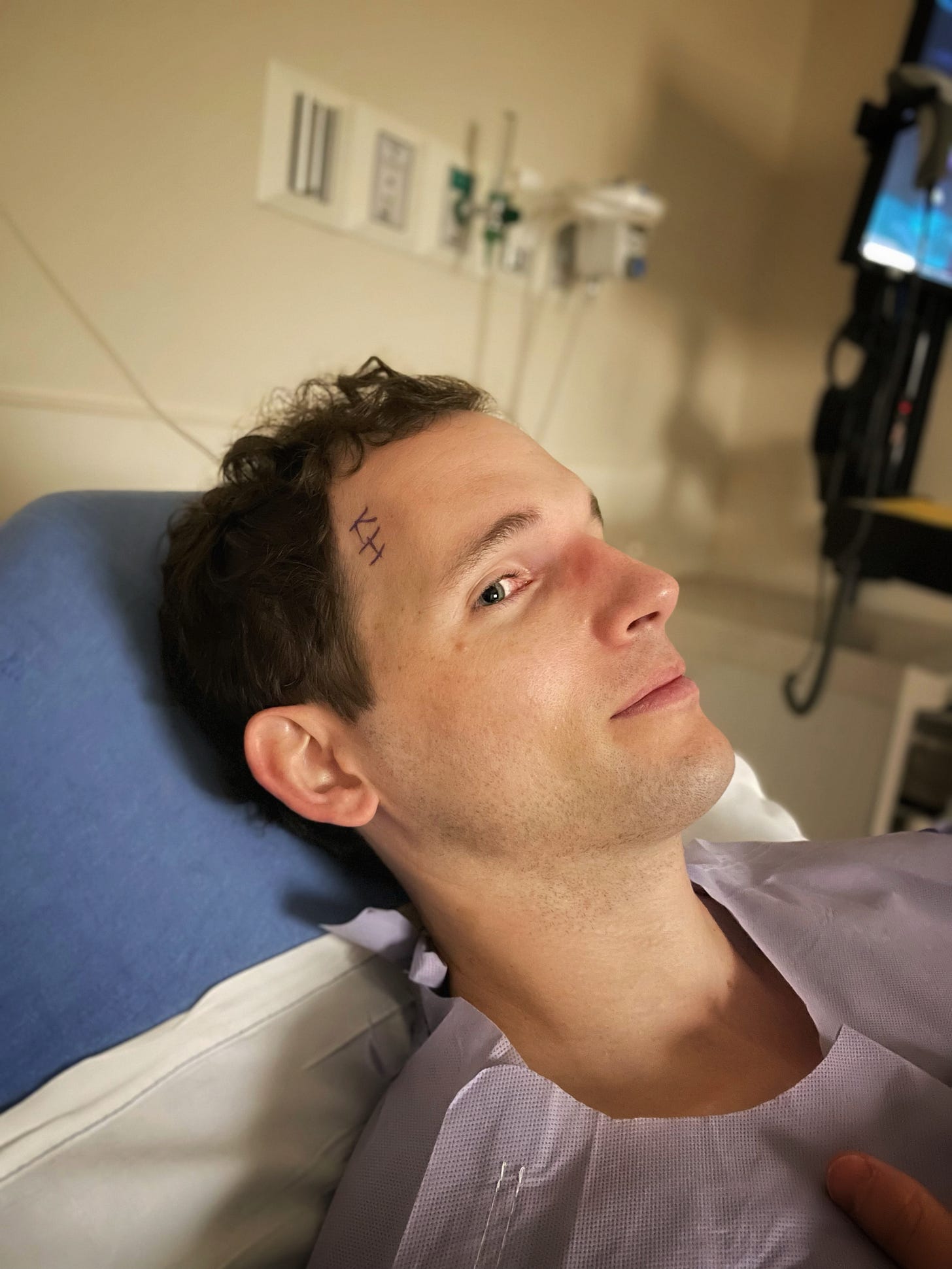
The first thing cancer takes from you is your sense of identity. For me, that was being an athlete. A lifelong obsession with soccer was my pathway to college through an athletic scholarship. After graduation, I stayed active, playing soccer, running races, and enjoying the rise in popularity for HIIT classes. My only interactions with the healthcare system involved a couple trips to the ER for stitches.
Then everything changed — I was 32, still feeling the stiffness from a 200-mile relay race in Oregon, when I collapsed, vomited, and began shaking violently. I was experiencing my first seizure, and for the first in my life, my body wasn’t doing what I told it to.
My identify was stripped away when the first responders arrived, including one of the two women serving at the Little Rock Fire Department. Let’s call her Mary. The ambulance sirens were blaring, and Mary was standing next to a gurney explaining what was about to happen.
“I’ll get into the ambulance, but we don’t need the gurney,” I insisted. Mary disagreed. We went a few more rounds until she lost patience with the man laying on the ground unable to stand, desperately trying to maintain a sliver of his masculinity. Mary bent down and gently lifted my 6’1” 190-pound frame off the floor without any sign of effort. I could have been a loose leaf piece of paper. Cradled in Mary’s arms, I surrendered my body to the healthcare system.
Fast forward 4 years, I was in remission, head full of hair, running again, and training for a big mountaineering trip in Ecuador, something I was planning to do B.C. (Before Cancer). I was beginning to reclaim my identity.
Despite this progress, cancer is creative in finding ways to remind you of its presence. Standing at my gate in Little Rock's airport waiting for American Airlines to call Group 4, someone behind me asked, "Are you Eric Wilson?"
I had never met this guy, but he was "inspired" by my story. It caught me off guard. The very few times I posted anything about cancer, the privacy settings were limited to friends. These posts would soon be deleted, I told myself. 15 minutes later, his gate was calling him. We awkwardly hugged and parted ways. I stood there, surrounded by people positioning themselves to be the first in line when their group was called, wondering if I could ever erase cancer from how the world sees me.
A few days later, I found myself sitting at a DC bar enjoying the hilarious social experiment known as online dating. Thirty minutes in, we successfully navigated through the awkwardness and began enjoying ourselves. Then I was once again caught off guard — "I don't know how to ask this...but do you have brain cancer?"
I would soon learn that the woman, an attorney, had asked her law firm’s internal investigator to look into me. Let’s call him Kevin. Online dating is a crazy world, and Googling someone before the first date is standard protocol. But an investigator? This was a whole new level. I wish I had a Kevin.
Ten minutes later, she's crying and "inspired" by my story. For the guys reading this, here's a pro tip -- don't make the girl cry on the first date. The waiter came over to assist, asking if we wanted another drink. Um, yeah dude.
It's so strange for people to be inspired by something you hate. Some people proudly make #cancersurvivor a central pillar of their identify. They broadcast it on social media and wear cancer-branded jewelry and t-shirts. They run races to raise funds for cancer research. I wanted nothing to do with any of that. Six years later, facing off with cancer again, I still hesitate in writing this essay.
Psychology tells us that identify is a product of the story we tell ourselves, and I can't pretend cancer doesn’t saturate my thoughts every single day. Every time I shower, I feel the scars on my fingertips when I wash my hair. Every time I look at my calendar, I see the next scheduled MRI. Every time I pass on dessert at a restaurant, it’s because of my anti-cancer diet. Before I asked my girlfriend to marry me, I thought of cancer and how it could impact our family. I’m not a melancholy person. Trauma leaves footprints. You can't forget it. But nor do you want to. The only thing you can do, is embrace it.



Masterfully shared Eric. Your writing affirms a closely held belief of mine, that writing can be an outline of ideas, like girders for a building, upon which thoughts are fastened like panels with bolts called words holding them there. Some writing must be that way.
But the best writing is like a quilt, each square a thought, the patterns on each square the words, and the stitching? The stitching is the constant ever-moving passion and deep-hearted purpose from the writer's soul that holds everything said together. It is a work of love and art.
This post, Eric, is best writing.
Such a powerful passage you've written, Eric. You transport the reader into your shoes. Beautiful storytelling and such a spot-on message. Thinking of you, my friend.